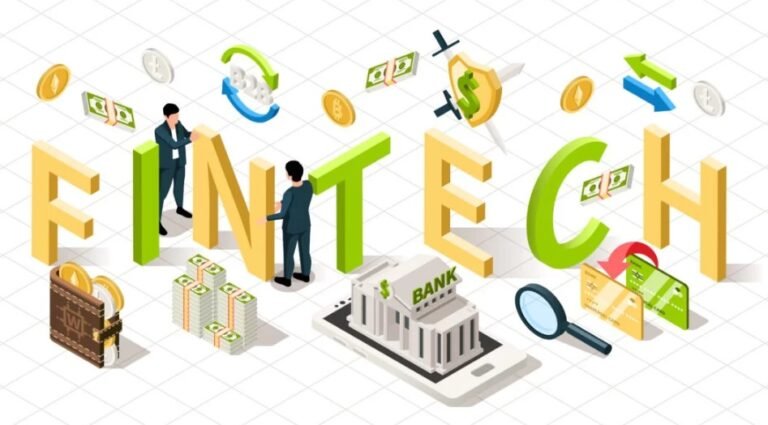The landscape of financial services is undergoing a remarkable transformation, driven by technological advancements and shifting consumer expectations. Fintech, which combines finance and technology, has emerged as a crucial force reshaping how individuals and businesses manage their money. With the rise of smartphones, artificial intelligence, and blockchain, traditional financial institutions are adapting to a new reality. This evolution not only enhances efficiency but also fosters inclusivity, providing opportunities for millions who were previously underserved by conventional banking systems.
The Birth of Fintech
Fintech’s origins can be traced back to the late 20th century when technology began to play an integral role in banking. The introduction of automated teller machines (ATMs) in the 1960s marked the first significant shift, allowing customers to access their funds without visiting a bank. This technological leap paved the way for further innovations, such as online banking in the 1990s, which reshaped customer interactions. As the internet continued to evolve, financial services gradually transitioned to digital platforms, making banking more convenient.
The Rise of Digital Payments
One of the most significant advancements in the fintech revolution is the rise of digital payments. Mobile wallets and payment platforms like PayPal, Venmo, and Square have revolutionised how consumers make transactions. These services offer quick and secure ways to transfer money, pay bills, and make purchases without the need for cash or physical credit cards. The convenience of contactless payments, particularly highlighted during the COVID-19 pandemic, has led to a surge in their adoption, signalling a shift towards a cashless future.
The Impact of Blockchain
Blockchain technology is another critical development within fintech, providing a decentralised and tamper-proof method of record-keeping. Originating with cryptocurrency, particularly Bitcoin, blockchain has expanded its applications beyond digital currencies. Financial institutions are now exploring how blockchain can enhance transparency, reduce fraud, and streamline processes. Smart contracts, which execute automatically when predefined conditions are met, represent a promising application, particularly in areas such as supply chain finance and real estate transactions.
Lending Innovations
Fintech has greatly influenced the landscape of lending through the emergence of peer-to-peer (P2P) lending platforms. These platforms connect borrowers directly with individual lenders, removing the need for traditional banks as intermediaries. This model not only accelerates the lending process but also provides competitive interest rates. Moreover, alternative credit scoring methods, such as analysing social media activity and transaction history, have improved access to credit for those with limited credit histories, fostering financial inclusion.
Robo-Advisory Services
Investment management is also being transformed by fintech through the advent of robo-advisors. These digital platforms use algorithms and data analysis to provide automated financial advice and portfolio management at a fraction of the cost of traditional financial advisors. This democratization of investment services allows individuals with lower amounts of capital to access tailored investment strategies, promoting a broader understanding of investing among the general public. By leveraging technology, robo-advisors simplify the investing process and make wealth management more accessible.
Regulatory Challenges and Compliance
As fintech continues to evolve, regulatory challenges remain a significant consideration. Financial institutions and fintech companies must navigate a complex landscape of regulations designed to protect consumers and maintain market integrity. The rapid pace of innovation often outstrips regulatory bodies’ ability to keep up, leading to a patchwork of regulations that can vary significantly by region. Fintech companies are increasingly incorporating compliance technologies, or “regtech,” to ensure that they adhere to regulations while maintaining agility in their operations.
The Future of Fintech
Looking ahead, fintech is poised for further transformation. Technologies such as artificial intelligence and machine learning will enhance predictive analytics, allowing financial institutions to better understand customer behaviour and offer personalised solutions. Additionally, the integration of the Internet of Things (IoT) may lead to new ways of tracking and managing financial assets. As fintech continues to break down traditional barriers, it is likely to promote greater financial literacy and empower consumers to take control of their financial futures.
Conclusion
The evolution of fintech is not merely about technology; it represents a fundamental shift in how financial services are delivered and consumed. As innovations continue to emerge, the sector is becoming increasingly customer-centric, catering to diverse needs and preferences. This evolution fosters a more inclusive financial ecosystem, helping to bridge gaps and offer opportunities to previously underserved populations. Ultimately, fintech’s transformational journey is just beginning, and its impact on financial services will shape the industry for years to come. So, it is important for financial institutions to stay abreast of these developments and adapt accordingly in order to remain competitive in the ever-changing landscape of fintech. By embracing innovation and leveraging technology, the future of finance holds endless possibilities for both institutions and consumers alike. So, let’s embrace the fintech revolution and see where it takes us next! There is no end in sight for this exciting journey. Let’s continue to explore, innovate, and evolve together with fintech. The possibilities are limitless.
